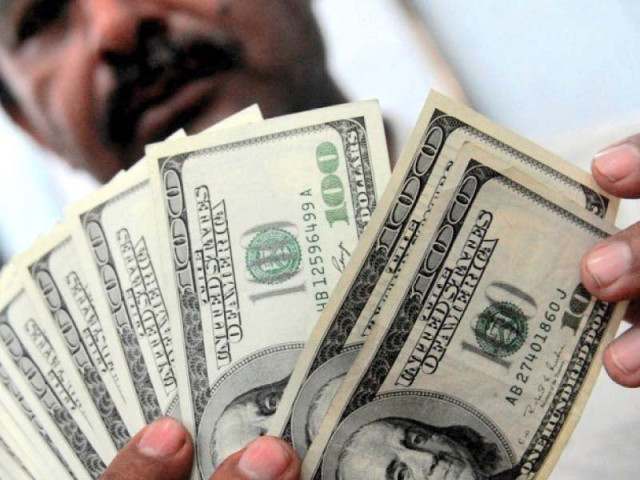Looking for a helping hand: Pakistan to borrow $1b from Islamic Development Bank
Will ask China to roll over another $1b loan; money to finance crude oil imports and meet budgetary support needs

The government has had the S1-billion loan term extended twice and is paying over 3.5% as interest to China. PHOTO: FILE
Continuing its trend of borrowing money to increase foreign exchange reserves, Pakistan will now borrow $1 billion from the Jeddah-based Islamic Development Bank (IDB) and ask neighbouring country China to roll over a $1-billion loan it obtained earlier.
The move is meant to help Pakistan meet budgetary support needs and finance crude oil imports, helping the country increase its official reserves to $20 billion in the next 12 months.
The move to raise $2 billion from these two foreign sources will also help avert pressure on the rupee-dollar parity in the next financial year 2015-16.
The government will borrow $1 billion from International Islamic Trade Finance Corporation (ITFC) of the Islamic Development Bank to finance crude oil imports. The ITFC – an entity working under the IDB – will lend the money under a short-term Murabaha financing arrangement, said officials at the Ministry of Finance.
The ITFC will raise the money on its books from international capital markets and then lend to Pakistan, they added. The money will be received during the next fiscal year.
During the outgoing fiscal year, the government also borrowed $700 million from the IDB for a shorter period to finance crude oil imports.
Since June 2013, when the current PML-N administration took office, economic ties between Pakistan and the Gulf countries have seen a gradual improvement. Last year, Saudi Arabia gave a $1.5-billion gift to Pakistan that helped the country meet the International Monetary Fund-determined reserves targets.
During the Pakistan Peoples Party (PPP) tenure, IDB lending remained around $250 million per annum. During the last two years of the PPP government, the IDB lent just $487 million, according to budgetary books.
Under the 2008 IMF programme, reserves requirements to meet crude oil import needs were shifted to the inter-bank market from the SBP.
In addition to borrowing $1 billion for crude oil imports, Pakistan may also obtain a short-term loan of $160 million from the IDB for budgetary support, the officials said.
The target and current situation
For the next fiscal year, the IMF balance of payments projections show that Pakistan is required to increase its gross official foreign currency reserves to $20.2 billion, excluding reserves held by commercial banks. This would need Pakistan to add an additional $5 billion in the reserves held by SBP — a monumental task. For the outgoing fiscal year, the IMF has asked Pakistan to increase the reserves to $15.4 billion.
As on May 8, the latest data available, foreign exchange reserves held by the SBP clocked in at $12.55 billion. The government still needs another $2.8 billion to hit this year’s target, which would somewhat be helped by the IMF giving $506 million in end-June.
Total foreign economic assistance for the next fiscal year has been estimated at $9.5 billion including $1-billion Euro bonds that the government will issue next year.
Earlier, in March last year, the government raised $2 billion by floating five- and 10-year dollar-denominated Euro bonds at interest rates ranging between 7.25% and 8.25%. In its second attempt, the government issued five-year $1 billion Ijara-Sukuk bonds at 6.75%.
China Safe Deposit
Meanwhile, finance ministry officials said Pakistan was also seeking a $1-billion roll-over of the Chinese loan it obtained to buffer foreign currency reserves. The term of the loan, obtained during PPP’s tenure, is expiring next month. However, the request for a one-year extension has to come from Prime Minister Nawaz Sharif, said officials.
The PML-N government has had the loan term extended twice and is paying over 3.5% as interest.
Independent economists have criticised the government’s habit of building reserves through debt creating instruments, terming it highly unsustainable.
Published in The Express Tribune, May 15th, 2015.
Like Business on Facebook, follow @TribuneBiz on Twitter to stay informed and join in the conversation.



















COMMENTS
Comments are moderated and generally will be posted if they are on-topic and not abusive.
For more information, please see our Comments FAQ